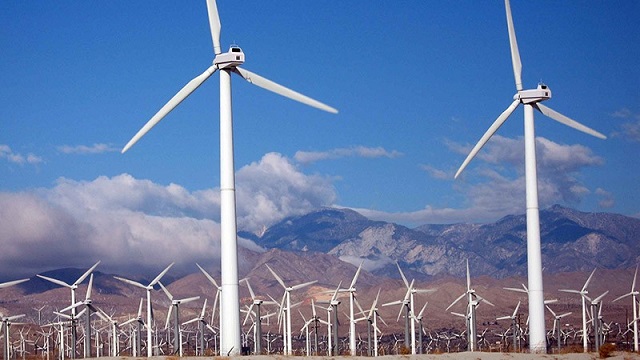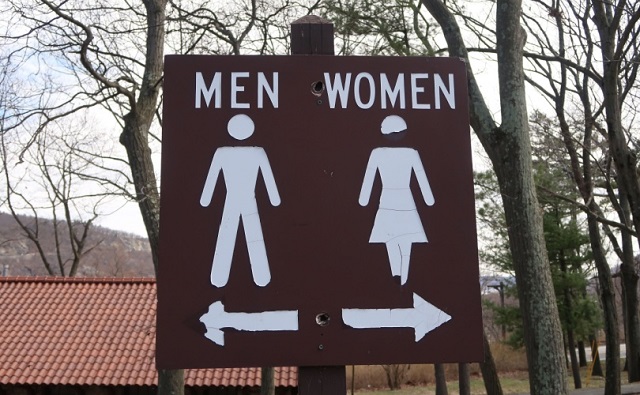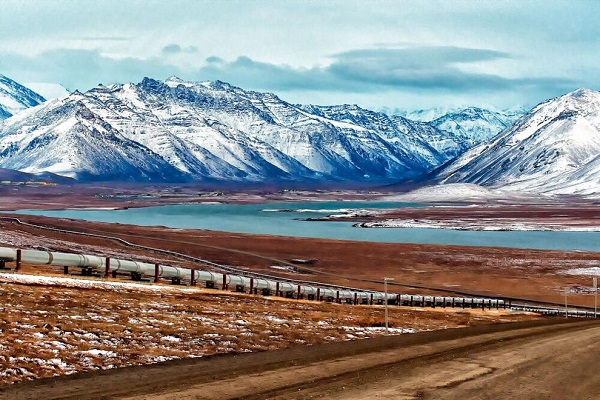Alberta
NOVA Chemicals partnership looking to solve massive problem of plastics waste!

NOVA Chemicals and Enerkem Collaborate to Close the Loop on Plastics Recycling
Research Seeks New Way to Reduce Waste to Landfill and Drive Zero Plastic Waste
Two Canadian companies will collaborate on innovative technology to close the loop on recycling and drive a plastics circular economy. NOVA Chemicals Corporation (“NOVA Chemicals”), a leading producer of chemicals and plastic resins, and Enerkem Inc. (“Enerkem”), a world-leading waste to renewable fuels and chemicals producer, have entered into a joint development agreement to explore turning non-recyclable and non-compostable municipal waste into ethylene, a basic building block of plastics.
Working together, the companies will research advanced recycling technology to transform hard-to-recycle municipal waste, including items such as plastics, household waste, and construction materials, into ethylene at full commercial scale. Ethylene, produced from waste, would advance a plastics circular economy and help meet consumer brand goals for recycled content in packaging.

Advanced recycling technologies are a necessary component of moving to zero plastic waste by creating valuable new feedstocks from post-use plastics that cannot be easily mechanically recycled. The quality of polymers produced with advanced recycling products is indistinguishable from those made from 100 percent virgin, fossil-based feedstocks.
“We are excited to work with Enerkem to create innovative, sustainable solutions for a plastics circular economy,” said Todd Karran, president and CEO, NOVA Chemicals. “Our R&D teams will collaborate to develop game changing technology to push the boundaries for recycling waste to create new feedstocks and bring value to the environment, economy and society.”

Enerkem is the first company in the world to produce renewable methanol and ethanol from non-recyclable, non-compostable municipal solid waste at full commercial scale. Its current technologies replace the use of fossil sources like petroleum and natural gas to produce sustainable transportation fuels and chemicals that are used in a broad range of everyday products.
“We are delighted to team up with NOVA Chemicals to collaborate on new technology for waste-to-ethylene feedstock to solve one of the world’s most pressing environmental issues,” said Dominique Boies, CEO and CFO, Enerkem. “This strategic partnership will allow us to explore the development of new products and expand our offering in pursuit of the circular economy.”

Peter Nieuwenhuizen, Enerkem’s Vice President of Technology Strategy & Deployment, added “With over 20 years of technology development, we have built a robust gasification platform to turn waste and biomass into fuels and chemicals with high carbon efficiency. Enerkem’s technology has the scale and versatility to supply raw materials for the circular and decarbonized chemical industry that is being created now. Not just for plastics but also for many other chemical ingredients that are vital for everyday life.”
NOVA Chemicals is committed to enabling 100 percent of plastics packaging is recyclable or recoverable by 2030; and 100 percent of plastics packaging is re-used, recycled or recovered by 2040. “This research is one of the ways NOVA Chemicals is innovating to recapture the value of plastic products and create a world free of plastic waste,” said Karran. “Working together, we can shape a world that is better tomorrow than it is today,” he added.

About NOVA Chemicals Corporation
NOVA Chemicals develops and manufactures chemicals and plastic resins that make everyday life healthier, easier and safer. Our employees work to ensure health, safety, security and environmental stewardship through our commitment to Sustainability and Responsible Care®. NOVA Chemicals, headquartered in Calgary, Alberta, Canada, is wholly-owned ultimately by Mubadala Investment Company of the Emirate of Abu Dhabi, United Arab Emirates.
Visit NOVA Chemicals on the Internet at www.novachem.com.
About Enerkem
Enerkem produces advanced biofuels and renewable chemicals from biomass and residual material. Its disruptive proprietary technology converts non-recyclable, non-compostable solid waste into methanol, ethanol and other widely used chemicals. Headquartered in Montréal, Québec, Canada, Enerkem operates a full-scale commercial facility in Alberta as well as an innovation centre in Québec. Enerkem’s facilities are built as prefabricated systems based on modular manufacturing infrastructure that can be deployed globally. Enerkem’s technology is a prime example of how a true circular economy can be achieved by diversifying the energy mix and by making everyday products greener while offering a smart, sustainable alternative to landfilling and incineration.
Alberta
Alberta government should eliminate corporate welfare to generate benefits for Albertans

From the Fraser Institute
By Spencer Gudewill and Tegan Hill
Last November, Premier Danielle Smith announced that her government will give up to $1.8 billion in subsidies to Dow Chemicals, which plans to expand a petrochemical project northeast of Edmonton. In other words, $1.8 billion in corporate welfare.
And this is just one example of corporate welfare paid for by Albertans.
According to a recent study published by the Fraser Institute, from 2007 to 2021, the latest year of available data, the Alberta government spent $31.0 billion (inflation-adjusted) on subsidies (a.k.a. corporate welfare) to select firms and businesses, purportedly to help Albertans. And this number excludes other forms of government handouts such as loan guarantees, direct investment and regulatory or tax privileges for particular firms and industries. So the total cost of corporate welfare in Alberta is likely much higher.
Why should Albertans care?
First off, there’s little evidence that corporate welfare generates widespread economic growth or jobs. In fact, evidence suggests the contrary—that subsidies result in a net loss to the economy by shifting resources to less productive sectors or locations (what economists call the “substitution effect”) and/or by keeping businesses alive that are otherwise economically unviable (i.e. “zombie companies”). This misallocation of resources leads to a less efficient, less productive and less prosperous Alberta.
And there are other costs to corporate welfare.
For example, between 2007 and 2019 (the latest year of pre-COVID data), every year on average the Alberta government spent 35 cents (out of every dollar of business income tax revenue it collected) on corporate welfare. Given that workers bear the burden of more than half of any business income tax indirectly through lower wages, if the government reduced business income taxes rather than spend money on corporate welfare, workers could benefit.
Moreover, Premier Smith failed in last month’s provincial budget to provide promised personal income tax relief and create a lower tax bracket for incomes below $60,000 to provide $760 in annual savings for Albertans (on average). But in 2019, after adjusting for inflation, the Alberta government spent $2.4 billion on corporate welfare—equivalent to $1,034 per tax filer. Clearly, instead of subsidizing select businesses, the Smith government could have kept its promise to lower personal income taxes.
Finally, there’s the Heritage Fund, which the Alberta government created almost 50 years ago to save a share of the province’s resource wealth for the future.
In her 2024 budget, Premier Smith earmarked $2.0 billion for the Heritage Fund this fiscal year—almost the exact amount spent on corporate welfare each year (on average) between 2007 and 2019. Put another way, the Alberta government could save twice as much in the Heritage Fund in 2024/25 if it ended corporate welfare, which would help Premier Smith keep her promise to build up the Heritage Fund to between $250 billion and $400 billion by 2050.
By eliminating corporate welfare, the Smith government can create fiscal room to reduce personal and business income taxes, or save more in the Heritage Fund. Any of these options will benefit Albertans far more than wasteful billion-dollar subsidies to favoured firms.
Authors:
Alberta
Official statement from Premier Danielle Smith and Energy Minister Brian Jean on the start-up of the Trans Mountain Pipeline

-

 Opinion2 days ago
Opinion2 days agoClimate Murder? Media Picks Up Novel Legal Theory Suggesting Big Oil Is Homicidal
-

 Energy2 days ago
Energy2 days agoNet Zero’s days are numbered? Why Europeans are souring on the climate agenda
-

 illegal immigration10 hours ago
illegal immigration10 hours agoBiden’s DOJ Threatens To Sue Another State For Enforcing Immigration Law
-

 Economy9 hours ago
Economy9 hours ago‘Gambling With The Grid’: New Data Highlights Achilles’ Heel Of One Of Biden’s Favorite Green Power Sources
-

 Opinion2 days ago
Opinion2 days agoQuebec’s ban on gender-neutral bathrooms in schools is good news
-

 International20 hours ago
International20 hours agoTrump campaign says he will pardon Jan. 6 prisoners on ‘case-by-case basis’ if re-elected
-

 Energy2 days ago
Energy2 days agoHouses passes bill to protect domestic oil production, protect Iñupiat community
-

 Energy1 day ago
Energy1 day agoBiden Has Taken More Than 200 Actions Against Domestic Oil, New Report Says






